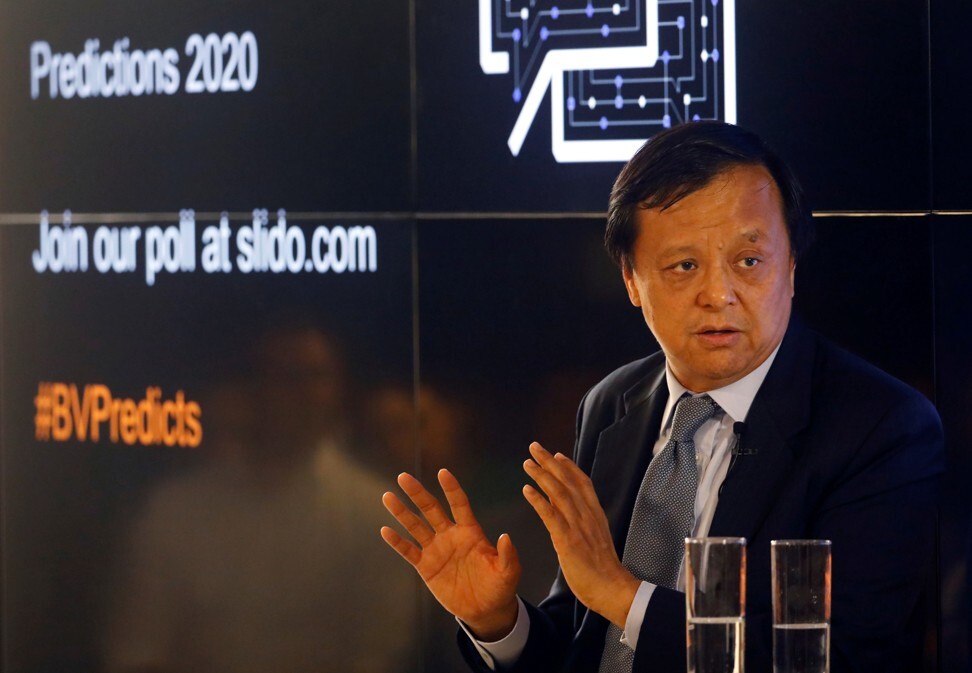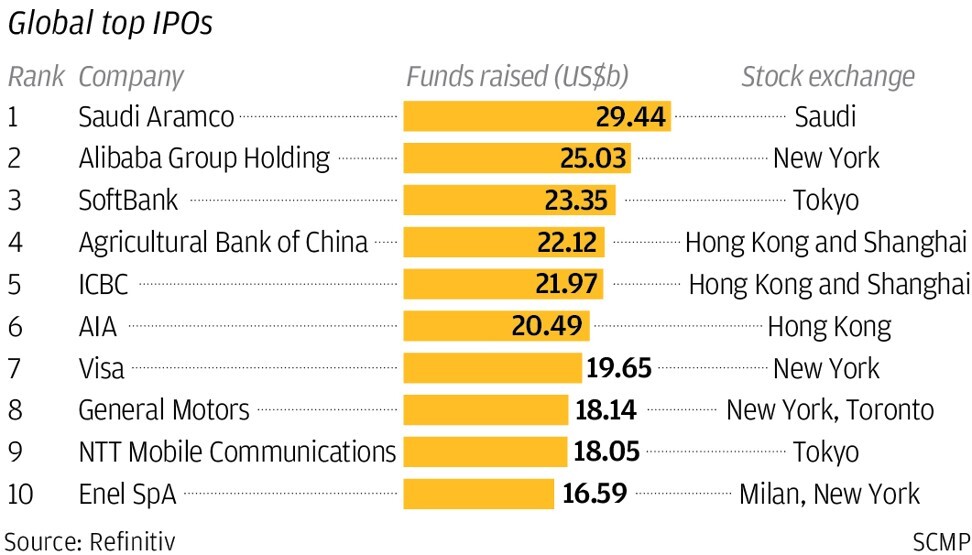
Exclusive | HKEX’s Charles Li wants to create another wave of mega IPOs in Hong Kong to stay ahead of Nasdaq in next market reforms
- A large number of US-listed companies cannot list in Hong Kong unless rules relaxed further, Li says
- Corporate shareholders are not allowed to own more voting rights than others in Hong Kong, which is why Tencent Music is barred under current rules
The idea, if adopted, will enable the likes of Tencent Music and online learning company Youdao to make their so-called “homecoming” stock offerings, according to Hong Kong Exchanges and Clearing (HKEX), helping to entrench Hong Kong the primary fundraising hub in the region along with Shanghai.
“There are companies with hundreds of billions of market cap that want to be back here, but probably are not going to be able to come back unless we make those changes,” Li said during a webinar conducted by the South China Morning Post on Friday. Listing reforms should go further, he added.

“We need to continue to ask ourselves the question: “Do we want to carry on further?” Li said during the webinar held in conjunction with the China internet Report published by SCMP Research. “I personally do, but again this effort needs to have all the key stakeholders to be comfortable.”
Hong Kong the key to access China’s stocks, says Connect’s architect
HKEX’s efforts have rewarded investors with a 50 per cent gain in its stock price this year, while the Hang Seng Index languished with a 9.8 per cent loss. Over a five-year period, the stock has risen 116 per cent, outpacing the benchmark index by more than five times.

Chinese entrepreneurs are still looking to list in the US because of its deep capital markets despite rising US-China tension, according ti Beike’s chief executive Stanley Peng Yongdong said earlier this month.
Ant Group’s blockbuster dual listing tilts balance in US-China rivalry
Since the HKEX listing overhaul in 2018, some 99 new-economy companies and biotech firms have listed in Hong Kong, raising HK$390.5 billion of proceeds. These companies account for 23 per cent of Hong Kong’s market capitalisation and 15 per cent of average daily turnover.
A total of 64 companies raised a combined HK$92.8 billion in Hong Kong in the first half of this year, an increase of 29 per cent from last year, making Hong Kong the world’s second most popular listing destination.
About 42 per cent of all US-listed mainland tech firms have weighted voting rights (WVR) structures while 84 per cent of the 50 biggest technology unicorns in mainland China have corporate shareholders, HKEX said in its consultation paper.
Tencent Music, NetEase-backed Youdao, and live-streaming company Huya are among 38 US-listed mainland Chinese companies that do not qualify to list in Hong Kong as they have corporate shareholders with a WVR structure. US and Singapore bourses do not prohibit companies with such structures from doing IPOs.
The Financial Services Development Council, a government think tank, supported the HKEX proposal but Hong Kong Investment Funds Association wants to have more safeguards for investors.
The exchange should also consider lowering the minimum market cap for a company with WVR to list in Hong Kong as the current HK$40 billion is too high, says Christopher Cheung Wah-fung, a lawmaker for the financial services sector in Hong Kong and chairman of Hong Kong-based broker Christfund Securities.
“If the exchange can lower the bar to HK$20 billion, it will attract more tech firms to list,” Cheung added.


